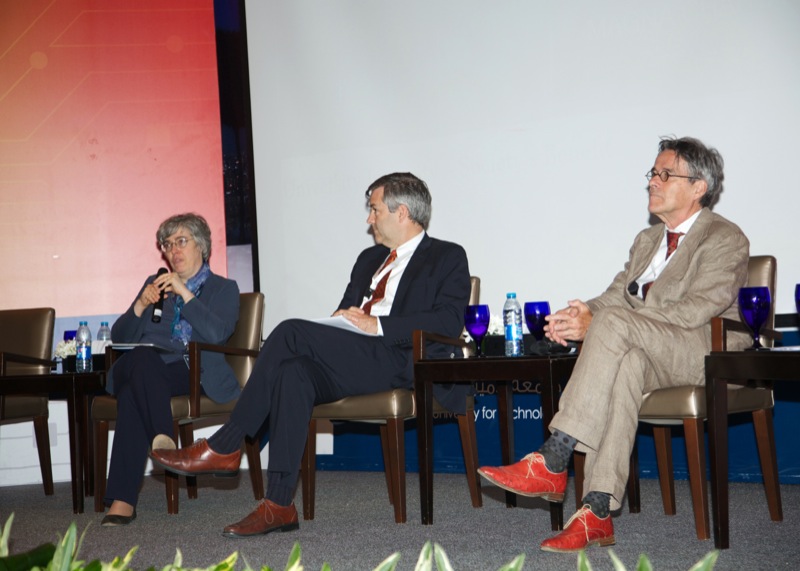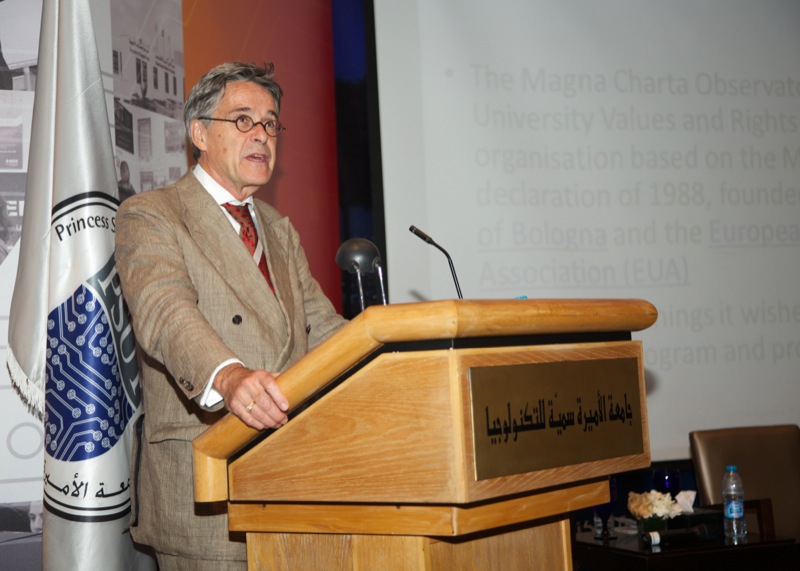Date: 26 JUNE 2014
Event location: Amman
Type: Special Events
More than 250 participants, including 150 Arab and European university leaders, gathered from 10-12 June for the Second Arab-Euro Conference on Higher Education (AECHE) in Amman, Jordan. The conference, on the topic “Strengthening Arab-Euro University Collaboration: The importance of regional mobility”, was hosted by the Princess Sumaya University for Technology (PSUT) and organised jointly by the Association of Arab Universities (AARU), the European University Association (EUA) and the University of Barcelona.
The conference followed up on the first AECHE conference that took place in Barcelona in May 2013, where a first set of bi-regional cooperation priorities were defined. The second AECHE targeted mobility of students and staff and its impact as an issue of critical importance to higher education in both regions. The intention was to map activity, share practices and encourage Arab and European university leaders, in partnership with governments and other societal stakeholders, to increase their commitment to investing in mobility.
A number of themes were discussed, including: internationalising through mobility programmes, educating global citizens and preparing for a global workforce through mobility, joint study programmes and their institutional impact, and the role of university leadership in driving mobility.
A special round table was also held on the critical topic of university autonomy and academic freedom, facilitated by the Magna Charta Observatory. In the round table, the issue of Syrian academic refugees was raised, which deserves urgent policy attention and active support from the university community. The international organisation Scholars at Risk invited university leaders to offer placements for academics in exile. If every university in the Arab world and in Europe would offer to take in two academics, and 10 students, noted Robert Quinn from Scholars at Risk, it would be possible to save a generation.
The conference discussions highlighted a number of important issues regarding mobility and bi-regional cooperation: two-way mobility should be enhanced, by encouraging more students and staff from Europe to study and teach in Arab universities; joint programmes should be increased as they are a strategic means to link institutions, generate collaborative teaching and ensure recognition of mobility periods abroad; mobility programmes and activities should be embedded in institutional strategies in order to render maximal impact; and regional frameworks for mobility and exchange, as has been created in Europe through the Bologna Process and the EU programmes, can provide the tools and mechanisms to deepen and improve mobility and its impact.
Participants agreed that developing and piloting an Arab country “Erasmus” type programme facilitating student and staff exchange and collaboration between Arab institutions could have considerable impact on the Arab region.
During the concluding session of the conference, reference was made to the declaration of the Third EU–League of Arab States Foreign Affairs Ministerial Meeting in Athens, Greece, which took place at the same time, and which welcomed AECHE “as a forum of co-operation between European and Arab higher education institutions”. Ministers underlined that “better understanding between people will be facilitated through exchanges between their youth, and co-operation between their higher education institutions and research centers”.
The outcomes of the conference and future commitments to be taken forward under the AECHE platform will be released in the coming weeks in a short report of conference conclusions. The third AECHE will be scheduled for 2015 and the location is currently under discussion.
More information on the AECHE event is also available on the conference website.

Aeche

Observatory Delegation

MCO President